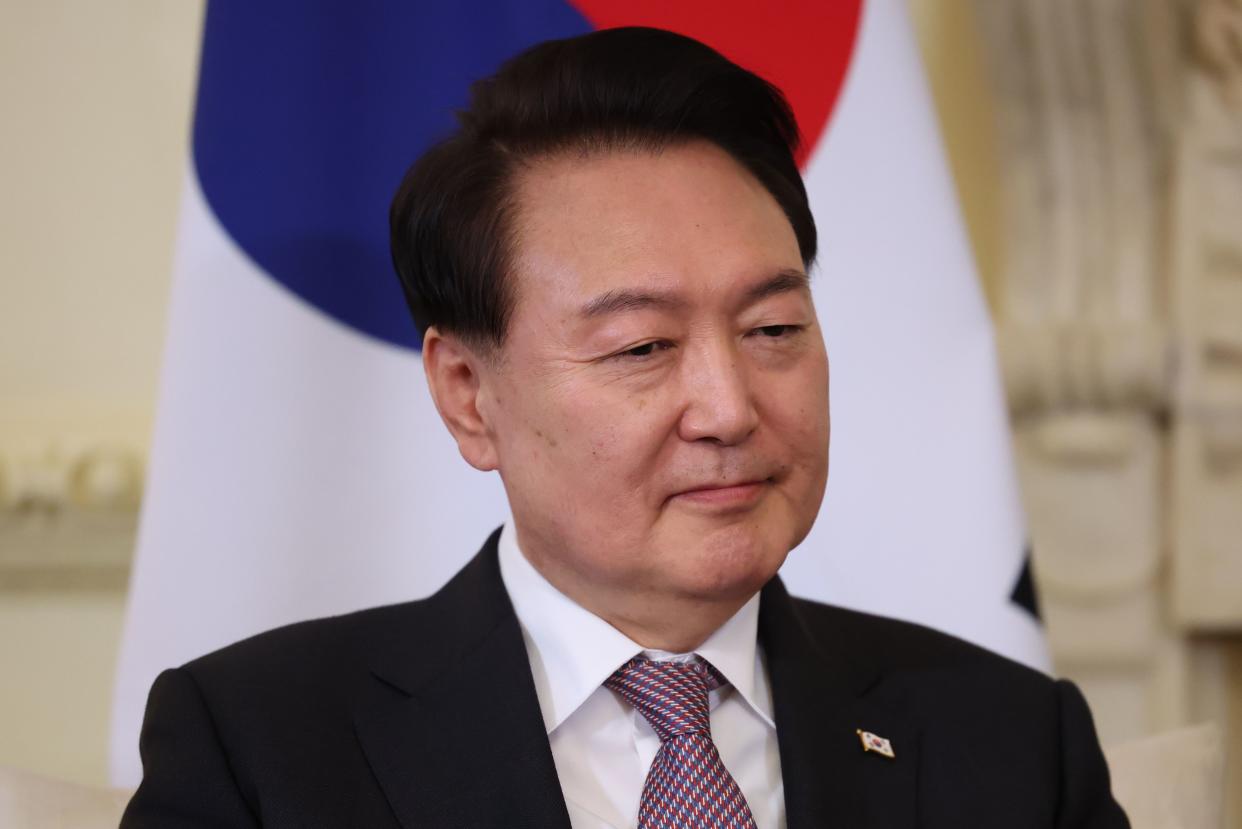South Korean President Yoon ‘Humbly’ Accepts Election Loss

(Bloomberg) -- South Korean President Yoon Suk Yeol pledged to listen to people’s voices more closely and improve the lives of the needy in his first public comments since his conservative party suffered a stinging defeat in parliamentary elections last week.
Most Read from Bloomberg
US Yields Spike as Hawkish Powell Puts 5% in Play: Markets Wrap
China Tells Iran Cooperation Will Last After Attack on Israel
Beyond the Ivies: Surprise Winners in the List of Colleges With the Highest ROI
IMF Steps Up Its Warning to US Over Spending and Ballooning Debt
“We must humbly accept the public sentiment expressed through the general election,” Yoon said Tuesday after the vote that left him in a weakened position for the remaining three years of his term. He’ll face greater opposition to his agenda that includes investor-friendly policies.
“We will communicate more and listen to public opinion with a more humble and flexible attitude,” he said at a cabinet meeting. His conservative People Power Party bloc took 108 seats in the 300-seat unicameral parliament known as the National Assembly, while the progressive opposition bloc led by the Democratic Party increased its representation to 192 seats. But the opposition did not reach the threshold of 200 seats needed to override a presidential veto.
Yoon has pledged to overhaul his government. His prime minister, chief of staff and many senior secretaries submitted their resignations after the setback at the polls. Yonhap News and other local media said Yoon is looking for replacements as part of his commitment to change course after the election that was the only national referendum during his single, five-year term in office.
Yoon also said he will try to advance structural reform for labor, education, pension systems and the medical field as he seeks to cooperate more closely with parliament. Yoon had faced criticism before the vote of not seeking compromise on key policies.
Yoon said the country must be firmly prepared for any possible impact on South Korea’s security and possible North Korean provocations in case Middle East tension intensifies. Kim Jong Un’s regime tested an intermediate-range about a week before the vote, but did not engage in any large-scale military activity after that.
Read more: North Korea Fires Ballistic Missile Ahead of South’s Vote
Yoon has few options to push legislation through a parliament dominated by the opposition that has enough power to halt filibusters. With a continued majority, the DP-bloc can halt PPP policy priorities that include fiscal restraint, reducing regulations on businesses, taking on labor unions and cutting taxes on real estate transactions.
The vote also took place as a prolonged walkout by trainee doctors upset over plans from Yoon’s government to increase medical school seats clouded the race. Polls indicated the public was growing tired of the labor dispute even though it sided with the administration’s plan to add more doctors.
--With assistance from Seyoon Kim.
Most Read from Bloomberg Businessweek
A Resilient Global Economy Masks Growing Debt and Inequality
Cities Use AI to Help Ambulances and Firetrucks Arrive Faster
The Shadow Swiftie Economy Booms With Bootleg Bracelets and $1,150 Bodysuits
Top Takeaways From Businessweek’s Investigation of Teenage Sextortion
©2024 Bloomberg L.P.

 Yahoo News
Yahoo News 

